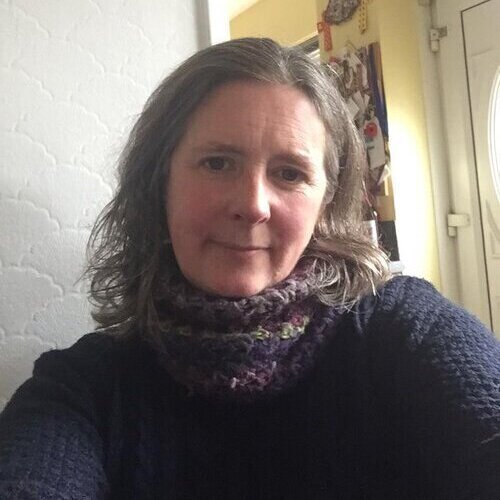Tell us a little bit about your background...
I completed my undergraduate degree in Nursing in 1997 and worked in acute mental health services for two years before travelling. When I returned I enjoyed work in different third sector organisations, including a year of paid work with Sacro’s mediation and reparation service, where I had volunteered for several years. Following that, for about 13 years, my aspirations were simply to spend as much time as possible with my 3 delicious children; mainly in childminding and teaching-assistant work. By 2017 they were old enough for me to think about what I would most like to pursue for my remaining employable years and I began to look at the options.
What inspired you to further your studies (beyond undergraduate level)?
I guess I was quite keen to ‘go back to school’! I had enjoyed studying at undergraduate level but other preoccupations can get in the way when you’re young and I was interested to see what I would learn with a little maturity and whether indeed I could apply myself to what was required. I considered applying for mediation posts without further training but felt that completing the masters programme would be advantageous in showing commitment, ability and hopefully relevant knowledge.
Why did you choose to study a Masters in Mediation & Conflict Resolution?
I narrowed further education down to rekindling my Nursing interest and re-registering (perhaps in Midwifery) or returning to Mediation which I had thoroughly enjoyed long ago. I did some reading, talked to family and friends and reflected on my choices. Mediation won!
What attracted you to Strathclyde specifically?
The Strathclyde course sounded comprehensive and exciting and I liked the idea of some practical application as well as theoretical learning. I called the course leader Charlie before putting in my application which not only reassured me that I would be able to manage the workload but furthered my interest in the course. The additional attraction specific to Strathclyde was how accessible it was; I could easily travel by train from Musselburgh.
What was the highlight of your time at Strathclyde?
I loved all of it! The reading and seminars which raised as many questions as they answered but deepened my understanding of how mediation can be useful. Conversations and debates in the classroom and on the train home about the merits of this and that theory or practice. The three weekends away to practice mediation skills and theories. Even the endless papers and dissertation were highlights in widening my horizons and reflecting on and honing my ideas. Perhaps the biggest highlight was doing something ‘for myself’ and the sense of achievement in accomplishing it.
Tell us about your dissertation research...
My research investigated whether the area-specific practice of faith-based mediation could offer ideas or methods which could improve mediation in a secular context. I reviewed the literature on mediation per se and faith-based mediation specifically and completed 5 semi-structured interviews with practitioners working in a multi-faith-based conflict resolution service in Scotland. Undertaking the interviews was enjoyable and rewarding, not least in providing food for thought on aspects of mediation that I mulled over when completing the write up of the dissertation. I found some points worth noting as proposals for both secular and faith-based practice and concluded that cross-fertilisation of ideas from both will be where we find our best practice.
Did you come across any challenges during your studies, and how did you overcome them?
I think the main challenge was in juggling family and study life; thankfully I had a supportive husband who enabled me to take the time I needed. My only sadness was not being able to become more involved with the Mediation clinic due to time commitments and distance.
What would be your advice for people considering taking this course?
Go for it! If you’ve read the blurb and think you’re interested perhaps speak to the course leader or someone who has completed it (I’m happy to chat to you!). The course is brilliant and I can’t imagine you’ll be disappointed. If you’re able to find some voluntary mediation practice to do concurrently (there are opportunities available if you look for them) that will serve you well as the practical application on the course itself is limited.
What do you think of the support available, here at Strathclyde?
I received all the support I needed and asked for, mainly from Charlie as course leader and from Pauline as course administrator who were both helpful and knowledgeable.
What are you doing now and what are your ambitions for the future?
I very happily secured a 3-year contract with Cyrenians’ Mediation and Support team in November 2019, not long after completing the master’s course. I was lucky enough to volunteer with them for 3 months while I was studying. I love the work with families and young people and my ambition for now is to remain in post with them for as long as possible and to keep learning all I can about the practice of mediation.
